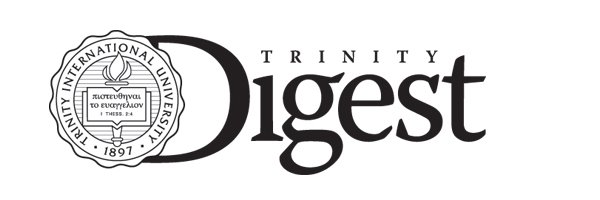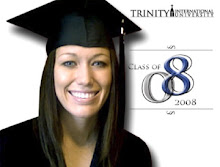Friday, February 23, 2007
Spritual State of the Campus Apathetic, say Leaders
Last semester individuals started noticing it, before the break they voiced their concern about it and this semester they are acting upon it.
A few weeks ago, Trinity International University (TIU) Director of Chapel David Whited called a meeting with the TIU Residence Life team – all shared concerns for the spiritual state of the campus, said Assistant Resident Director (ARD) Hillary Leeper.
Christian apathy was the subject that dominated the conversation. Resident Directors and Assistants addressed the problem, asking each other if there is something they are doing – or not doing – to contribute to the apathy.
“It's been on our hearts since last semester,” said Leeper who joined with Resident Director Heather Harms and ARD Heather Armstrong to schedule a few get-togethers throughout the semester with their Resident Assistants to pray for the campus.
Prayer groups have been sprouting up all over. A group of students meet with Senior Vice President for Student Affairs William “Coffee” Washington to pray every-other Wednesday night from 8-11 p.m. in the Arnold T. Olson Chapel.
Over 30 students are involved in a group called Penuel that meet on rotation during Chapel Mondays, Wednesdays, and Fridays to pray for the service while it is in session.
Senior Daniel Frampton organized an email prayer chain that united the School of Language, Literature and Communications.
“I feel like everyone started noticing it at the same time,” said Junior Heather Hershberger, a Christian Ministries major. She was convicted about her own proneness to slowly becoming a fence-rider last semester.
Hershberger is currently taking “Strategies for Discipling Ministries” with Professor Sundene, who facilitated class discussions last week about apathy and complacency, complimented with a study on the neither hot or cold, but lukewarm Church of Laodicea.
Christian apathy is being countered on campus with awareness and prayer that will ideally lead to revival. “An important aspect of collective revival is a personal revival in each individual heart,” said Women’s Softball Coach Kelly Bergmann.
“Repentance. That is where revival begins, with a personal humility and brokenness before God, allowing Him to search the heart and shed light on areas that need to be dealt with,” said Bergmann. “When individuals begin to do this in their community, that is when collective revival happens…and this ‘revival’ spreads like wildfire in a powerful way.”
Over a third of TIU’s students are athletes. Athletic Director Patrick Gilliam, aware of the impact of the athletic community, challenged athletes to take an intentional role in praying for and promoting spiritual revival on our campus.
Gilliam, a current Trinity Evangelical Divinity School (TEDS) student, gathered information on how to promote a revival and presented it to his women’s soccer team during their weekly team bible study Tuesday. According to his studies, TIU’s spiritual state is compared to fallow ground; ground once farmed, but which now lays waste.
In “Lectures on Revival,” Charles G. Finney wrote, “If you truly intend to break up the fallow ground of your hearts, begin by looking at your own heart … prepare the mind into a state where it is fitted to receive the Word of God.”
It is written in Hosea, “Break up your fallow ground: for it is time to seek the Lord, till He comes and rain righteousness upon you.”




